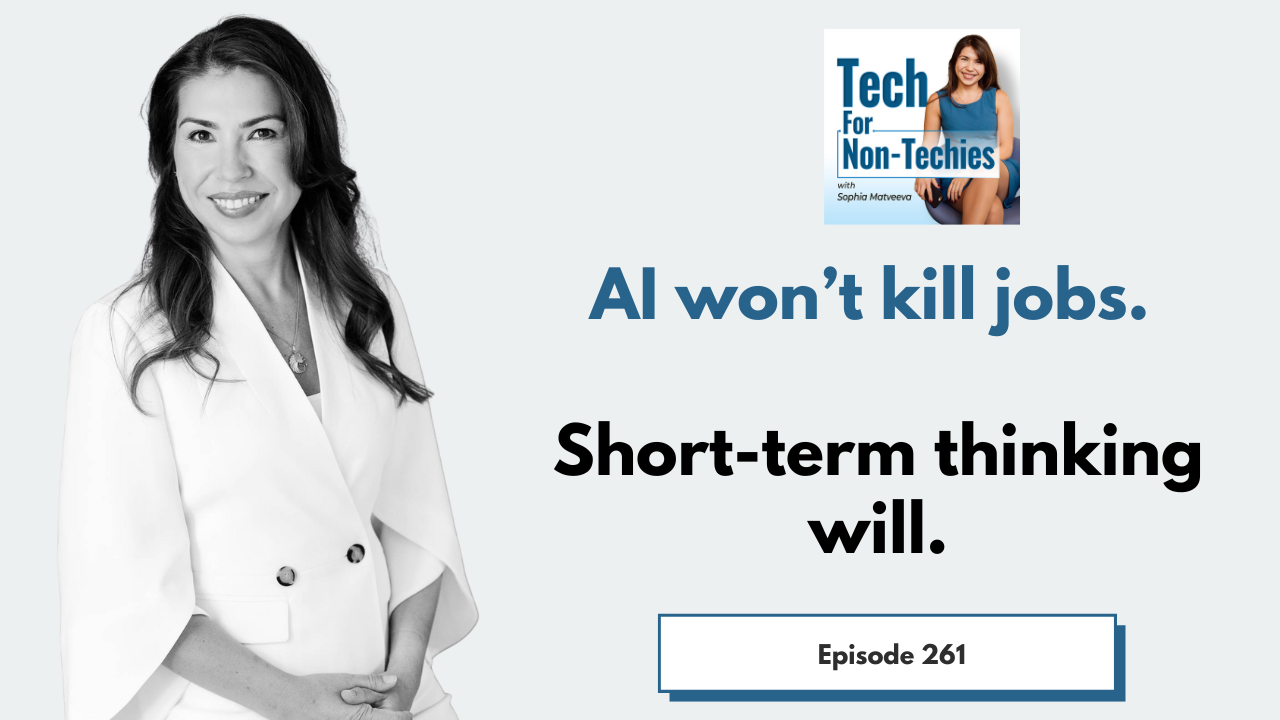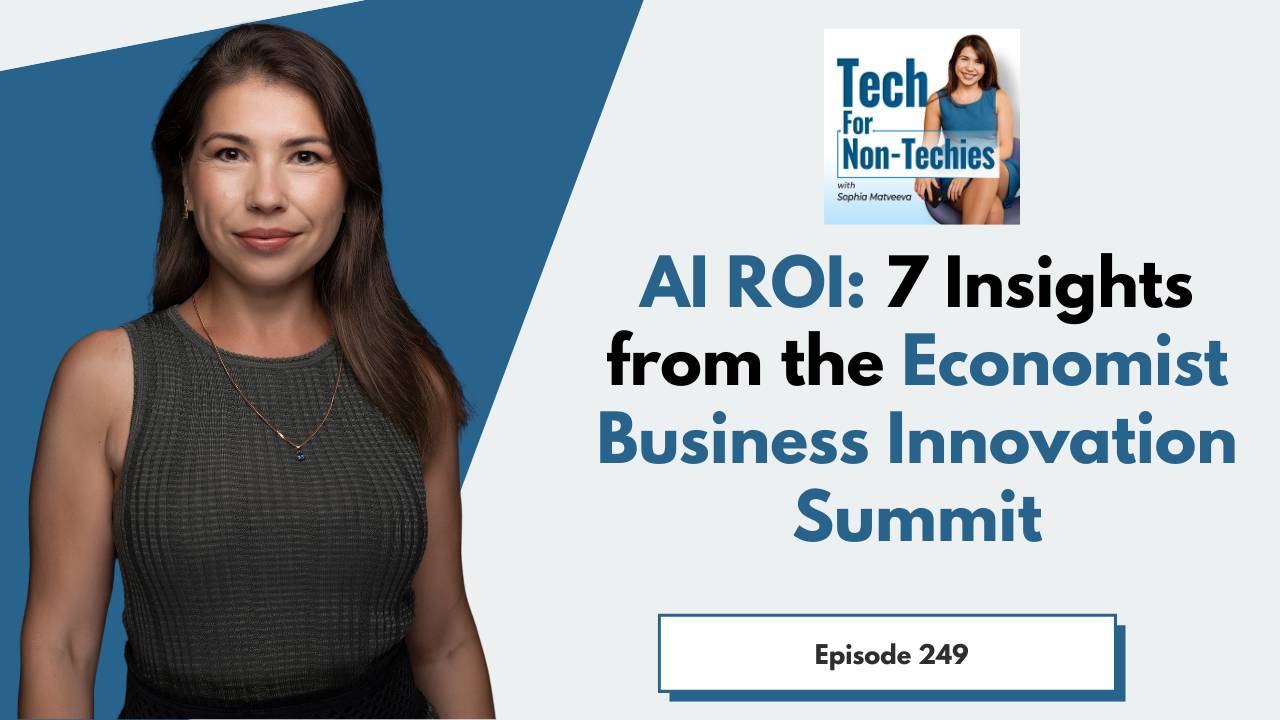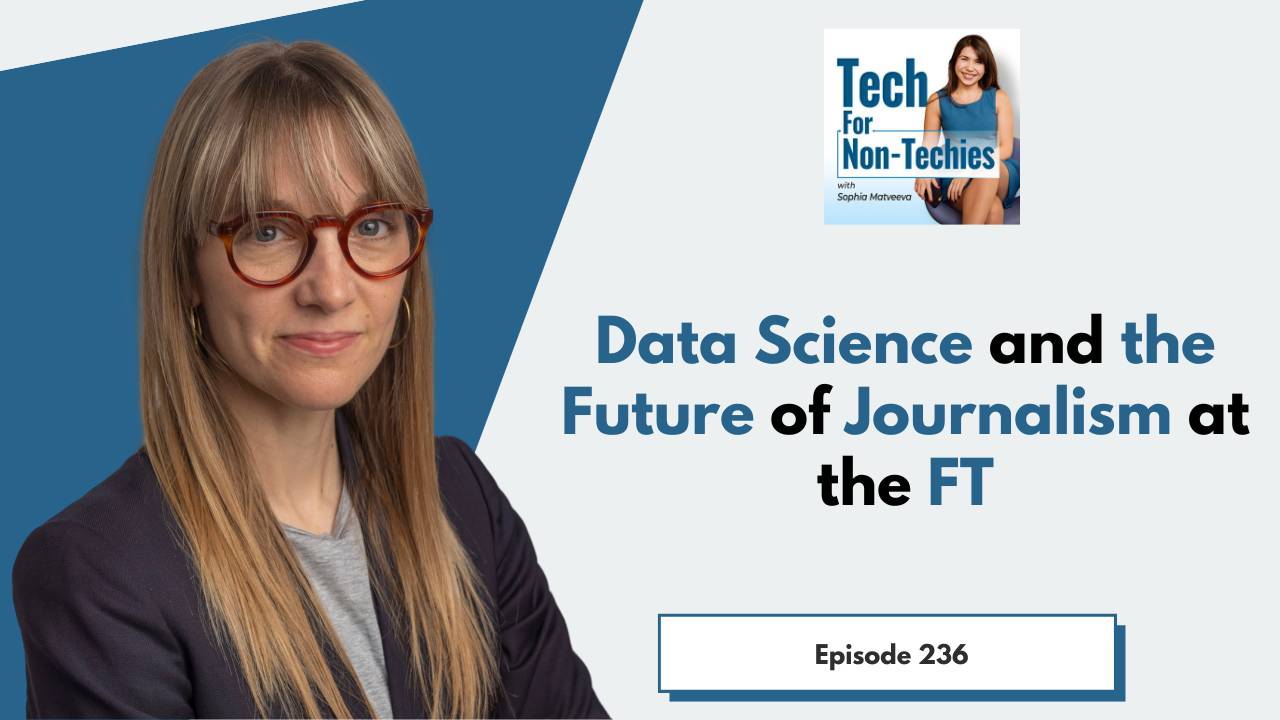Founders love the idea of skipping engineers and letting AI code their dream app.
Sadly, that dream falls apart fast.
AI can write code, but it also hallucinates, breaks in production, and leaves you with messes you can’t fix if you're not a coder.
What looks like a shortcut turns into a cost...
Some CEOs are already replacing engineers and junior staff with large language models.
But what if the real risk isn’t that AI replaces your team — it’s that it doesn’t, and you’re left without a talent pipeline?
In this episode, Sophia Matveeva breaks down:
-
Why cutting junior hiring today
...
Think advertising is just TikTok, Instagram, or TV? Think again.
At Cannes Lions, a major industry summit, Big Tech set the agenda for what’s next in AI, branding, and attention. This is your insider's summary.
In this episode, you will learn:
-
How offline spaces are powering smart digital
...
Is today's AI hype cycle just dot-com boom 2.0?
In this episode, host Sophia Matveeva talks with David G. Ewing, who lived through the original tech bubble (literally in a closet in Palo Alto!) about the striking parallels between then and now.
Listen to learn lessons from dot-com history to na...
Some companies waste millions on AI initiatives while others use it to gain serious market advantage.
In this episode, you'll learn the seven insights Sophia Matveeva, our CEO, got from The Economist's Business Innovation Summit and what they mean for your AI strategy.
This episode is for you i...
DeepSeek is a new AI that's 44 times cheaper than ChatGPT and completely open-source.
While tech blogs obsess over the technical specs, there's a bigger story for non-technical innovators that no one else is talking about.
In this episode, you'll discover the hidden opportunities DeepSeek creat...
What does it mean to evolve your career in the Digital Age?
Meet Janina Conboye, a Financial Times journalist who added data skills to her storytelling talent. This episode is a masterclass in smart career transitions.
Listen to learn:
- What data journalism actually is and why top news organi ...
Think AI is just about adding chatbots to your business?
Think again.
In 2024, AI has completely transformed who can build tech companies and how they're funded - but there's also dangerous hype that's already landing companies in legal trouble.
We're in what economists call 'The Middle Times ...
Every time a founder with a hardware idea comes to me for advice, I tell them they're choosing one of the toughest paths in tech.
But sometimes, that path leads to trillion-dollar success stories.
In this episode you'll learn from three stories of hardware innovation: Apple, Tesla and Nvidia.
App...
If you have an idea for an app or a tech business, you can now make a test product in just 15 minutes using AI tools.
But, you have to know how to use them wisely, so you don’t make pretty products that nobody wants.
Listen to this episode to learn:
- The sweet spot for using AI in product dev ...
How can you tell which innovations will last and what’s just hype? Are we in a generative AI bubble?
There is a methodology called the Hype Cycle that venture capitalists use to answer these questions.
But is this methodology foolproof? Find out in today’s episode.
Timestamps
00:00:00: Int...
If we know that ChatGPT makes things up, when should we avoid Large Language Models?
Is generative AI really safe to use when it matters?
Listen to this interview with Dr Heidy Khlaaf to find out.
Dr Khlaaf is the Principal Research Scientist at the AI Now Institute focusing on the assessment...















